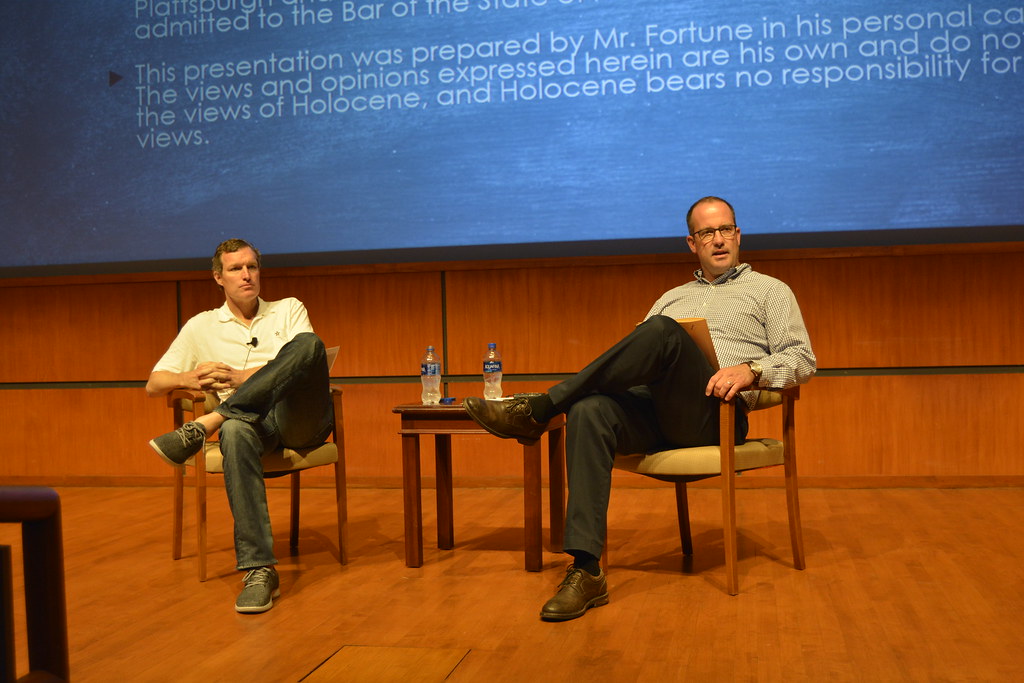
On Sept. 26, the Notre Dame Institute for Global Investing hosted a fireside chat with Brian Fortune, the general counsel and chief compliance officer at Holocene Advisors, LP, and NDIGI director Kevin Burke.
Holocene Advisors, LP, is an investment management firm pursuing a sector-diversified long/short equity strategy. Prior to Holocene, Fortune was the GC and CCO of ConatusCapital Management LP and Hunter Global Investors, both registered investment advisers.
After graduating with a Bachelor of Science degree from the State University of New York at Plattsburgh and a J.D. (cum laude) from New York Law School, Fortune began his legal career as a staff attorney in the Enforcement Division of the U.S. Securities and Exchange Commission.
Fortune discussed ethics and integrity in investing, covering various topics including the code of ethics, insider trading, and confidentiality and information barriers.
The code of ethics is the standard of business conduct. The code is in place in order to moderate behavior that must both reflect fiduciary obligations and comply with applicable federal securities laws. It is important to adhere to the code of ethics to maintain a degree of trust and help ensure the health of markets.
That trust can be broken by insider trading, or “trading in securities on the basis of material, nonpublic information in breach of a duty of trust or confidence with scienter (intent).” For information to be “material,” Fortune explained, it must either be significant to a reasonable investor or significantly alter the mix of mix of information. “Nonpublic” means it has not yet been reflected in the stock price.
Confidentiality and information barriers are in place in attempts to prevent insider trading and misuse of information, promoting adherence to the code of ethics.
Fortune also posed several hypothetical scenarios to the student audience, asking them to analyze situations and determine how to make the ethical decision. Fortune and Burke facilitated these case studies through a highly interactive discussion which allowed students to think about how they would act as professionals in the investment industry.
Fortune warned that even the best and brightest investors are at risk of breaking the code of ethics, and he encouraged the students to protect themselves and their employers by speaking with compliance early and often.
